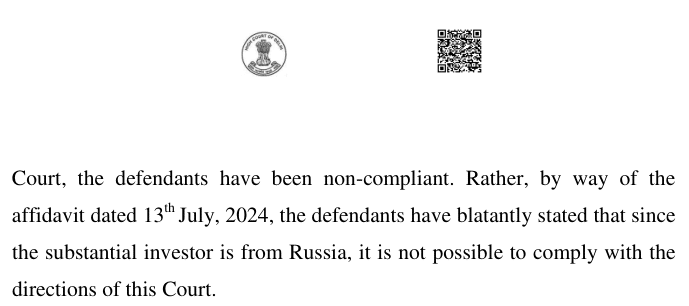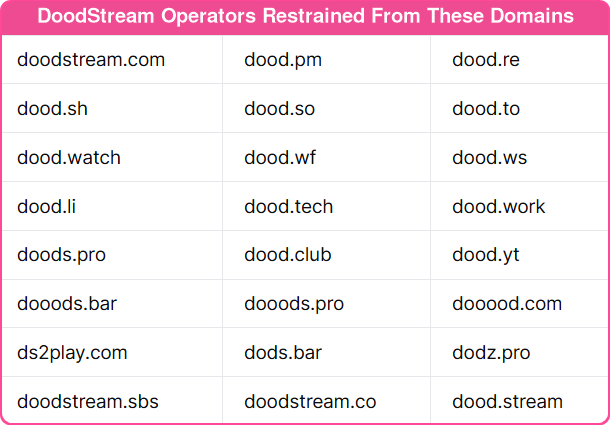 After labeling DoodStream the world’s largest illegal video hosting site, the major Hollywood studios, Netflix, Amazon, and Apple, teamed up in a lawsuit filed against its India-based operators at the High Court of Delhi.
After labeling DoodStream the world’s largest illegal video hosting site, the major Hollywood studios, Netflix, Amazon, and Apple, teamed up in a lawsuit filed against its India-based operators at the High Court of Delhi.
The need for urgent action was underscored by the scale of the DoodStream operation; according to the MPA, 2.69 billion visitors in 2023 alone. A March 2024 injunction issued by the High Court compelled the site to purge itself of all links to the plaintiffs’ content inside 24 hours. An April 5 filing by the plaintiffs informed the Court that didn’t happen, with a filing by the defense two days later by arguing otherwise.
Non-Compliance, With Attitude
As described in court documents, some kind of technical roundtable subsequently took place, attended by a technical expert appointed by the plaintiffs and two representing the defense. More specifically, the DoodStream defendants – Raja Durai and Sarvesh Chandran – were permitted to act as the site’s technical experts, despite actively running the site while in breach of a court order, and the site paying users for content uploaded.
That process led to the plaintiffs claiming that 1,512 tested links were still live. The Court tested six links at random, five of which remained functional. Counsel for the defendants said his clients had done their best under the circumstances; removing a million infringing links is very big job.
To help prevent infringement moving forward, the plaintiffs requested the removal of certain site features attractive to infringers. The defendants refused to comply, citing their “inability to remove these features.” Another request, to place content uploaders’ usernames next to content they uploaded, was rejected “due to the lack of infrastructure and technical feasibility.”
Interim Injunction
In a trade barriers report submitted to the U.S. government, the MPA reported that an interim injunction issued by the High Court of Delhi had proven ineffective. After failing to fully comply with any of the High Court’s orders, in September 2024 contempt proceedings against the defendants were described as “ongoing.”
The injunction attempted to ban DoodStreams’ operators “and all those acting for/on their behalf” from running the site. A list of domains was provided for convenience.
It’s not clear whether all of these domains were in active use at the time, but many remain active today and still report significant traffic.
Data collected by TF in December for November 2024 reveals examples including dood.li (120m), doods.pro (30.6m), dood.to (15.8m) and doodstream.com (5.5m), among dozens of similar domains that mostly redirect to the DoodStream frontpage.
Minimal Progress, Slowly
When first filed in March 2024, the complaint against DoodStream and its operators didn’t look much out of the ordinary. As the months progressed and the site remained online, the contrast between this lawsuit and actions against pirate sites based overseas, seemed to stand out.
In dozens of site-blocking actions, for example, requests for urgent action are usually met with a suitable response. More extreme measures, including compelling overseas domain registrars to disable domain names, have been signed off in days and then revisited in cases of non-compliance.
This case, albeit one contested by the defendants, has seen court orders and an injunction meet with non-compliance and ongoing infringement at considerable scale. But perhaps most jarring of all are comments from the defense suggesting that some of the Court’s instructions are optional, or at least up for negotiation.
More nuance may be available in court filings that aren’t made available to the public, but one statement explaining why the High Court of Delhi’s orders carry less weight than one might expect, really is quite something.

The next hearing is scheduled for early February.
From: TF, for the latest news on copyright battles, piracy and more.
Powered by WPeMatico

